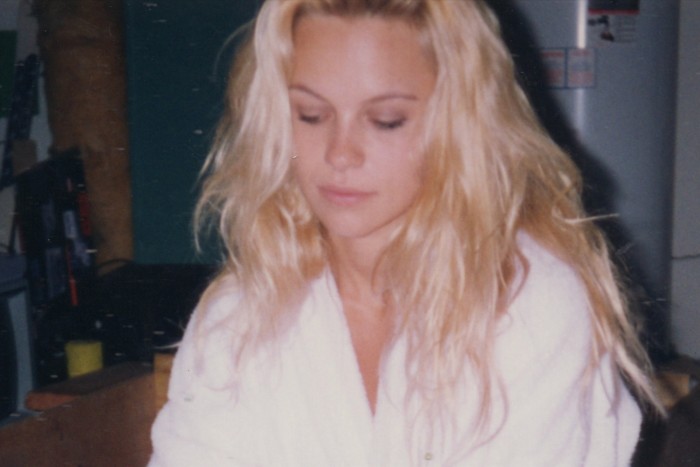Unlock the Editor’s Digest for free
Roula Khalaf, Editor of the FT, selects her favourite stories in this weekly newsletter.
The new Netflix docu-series Robbie Williams raises as many questions as it answers. Why, for instance, was the twentysomething Take That singer allowed to go on tour while gripped by chronic anxiety and addiction? How did the tabloid press get wind of his holiday fling with former Spice Girl Geri Halliwell? But perhaps the most pressing question is: Why does Williams spend the entirety of the show lying in bed in his underpants?
Robbie Williams is the latest in a glut of celebrity documentaries on Netflix made in co-operation with their subjects, following Pamela, a Love Story (Anderson), Arnold (Schwarzenegger), Sly (Stallone) and Beckham this year alone. All come hot on the heels of last year’s money-spinning, headline-grabbing Harry & Meghan, in which the Duke and Duchess of Sussex unloaded their well-documented grievances against the royal family and the British press.
Each combines a cosy “at home” vibe with the classic arc of the celebrity confessional: early struggle, dazzling success, fame-induced collapse and redemption. That the narrative is repetitive is to be expected; what matters is who is shaping it. While you can’t blame the subjects for wanting a voice, their version of events will be at best partial and, at worst, a shameless PR exercise aimed at burnishing their reputation.
That Harry & Meghan was co-made by their production company Archewell meant the series was never going to be a masterclass in documentary journalism. There was no mention, for instance, of Meghan’s first marriage, and the interviewees were limited to cheerleading friends and Meghan’s mother. In Beckham, directed by Fisher Stevens (known to many as Hugo in Succession), we see the footballer in an array of expensive cardigans watching footage of his footballing triumphs (his notorious 1998 red card during England vs Argentina aside). While there are allusions to “difficult” tabloid stories, his alleged affair with Rebecca Loos and his controversial ambassador role for Qatar are studiously avoided.
On the surface, Williams seems the outlier here, happy to spill the beans on more uncomfortable aspects of his story, from failed relationships to his fabled bitterness towards one-time bandmate Gary Barlow and his falling-out with longstanding co-writer Guy Chambers. But it is also clear that the series has been heavily stage-managed by its star — it could only have been his idea to be shot in his underpants — resulting in an engaging yet flagrantly one-sided account. No one else, not even his wife, gets a word in.

Celebrities justify such one-sidedness as a redressing of the balance after decades of media mistreatment. Pamela is a portrait of a woman bruised and wary after two decades of having her body and her love life scrutinised by the press. This is underlined in Sarah Ditum’s new book Toxic, which offers a searing account of the press intrusion, exploitation and industrial-scale misogyny experienced in the 2000s by female stars including Britney Spears, Kim Kardashian and Jennifer Aniston. More recently, the 2021 documentary Framing Britney Spears came down on the side of the singer but was nonetheless made without her consent. Spears later said she cried for two weeks following its release.
If celebrities have long been victims of mass prurience and a callous media, the rise of today’s docu-confessional reveals how that power is shifting. And there is no disputing these series’ popularity: the Beckham and Williams docs went straight to the top of Netflix’s most-watched charts. The streamer has said that 28mn households watched at least part of Harry & Meghan on its debut, making this its most viewed documentary in a premiere week. Small wonder that other networks are starting to follow Netflix’s lead. This summer brought the Michael J Fox documentary Still on Apple TV+, while next week sees the release of Amazon Prime Video’s Ronnie O’Sullivan: The Edge of Everything, documenting the snooker champion’s rise to fame and the addictions that threatened to derail it.
There can be much to enjoy in these series and the glimpses they provide of their subjects’ inner sanctums (if nothing else, there is fun to be had critiquing their soft furnishings). But it’s worth reminding ourselves that not only are they being paid handsomely to tell their stories, but also that the storytelling itself is compromised. To relive your darkest days in front of the camera takes guts, but granting your filmmakers editorial independence would be even more courageous.
Follow FTWeekend on Instagram and X, and subscribe to our podcast Life and Art wherever you listen
